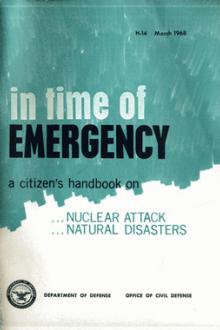Beautiful Things, Hunter Biden [good book recommendations .txt] 📗

- Author: Hunter Biden
Book online «Beautiful Things, Hunter Biden [good book recommendations .txt] 📗». Author Hunter Biden
She often pointed out rites of passage in my crack addiction, even numbering and abstracting them, like a lecturer in an advanced independent-study course.
#37: Loses apartment keys whenever he goes out.
#67: Never picks eyes up from the floor more than thirty seconds at a time because always scanning floor for crack crumbs.
At one point, she said I’d graduated into crackology’s PhD program. It was during the phase when it took me an eternity just to pack a bag for a trip. I’d have a flight in two hours, and two days later I’d still be sitting in the apartment, bag open and clothes strewn everywhere. Rhea would walk in and shake her head. “Are you fucking kidding me? Here,” she’d say, and grab my clothes, stuff them in the bag, and push me out the door.
Rhea saved me, even as she sucked me in. She wouldn’t let me buy from anyone else, protecting me from having to track down my own drugs on DC’s more cutthroat streets. She taught me how to use as safely as possible. She was meticulous about who she bought from, where she bought it, and what was good stuff and what was trash. She always bought in reasonable increments that, in theory at least, limited me from going on a full-out binge—meaning, in the relative insanity of that universe, not using continuously for more than two or three days straight. (Later, on my odysseys through California and Connecticut, two- and three-day binges would seem quaint.)
I loved Rhea as much as I’ve ever loved a friend. She’s the only person from that period of my life I actively maintain good memories of. During my years of addiction, I learned this: mean drunks and addicts are mean people, violent drunks and addicts are violent people, and stupid drunks and addicts start out as stupid people. Rhea was none of those. There are embarrassing, shameful, even shocking things we’ve all done while high. Yet there is a line that the best won’t cross, no matter how desperate: hurting someone. Rhea wouldn’t hurt a fly.
Rhea breaks my heart more than any friend I’ve ever had. Wicked smart, stand-up-comedian funny, resourceful, damaged—she’s been pedaling through a haze of survival and drug addiction for so long that she’s scared to death to put down the crack pipe. She has no relationship with her family, doesn’t have anyone in her daily life who loves her genuinely and unconditionally. She has no memory of any beauty awaiting her on the other side.
It would be a miracle if Rhea was ever able to get clean. But by the mere fact that I’m sitting here and writing about her, I’m a miracle. One day I hope to be strong enough to go back to see Rhea, in that very dark place she resides, and do what I can to get her in a position where she wants to be saved. I don’t want Rhea to believe that things will get better only by her dying.
Until then, her lesson is stark and unrelenting and holy: we’re all just human beings, trying as hard as we fucking can.
CHAPTER EIGHT
INTO THE DESERT
In October 2016, I set out on a crack-fueled, cross-country odyssey.
That wasn’t my plan. The plan was to get well. Until a couple of months earlier, I’d limited my crack use to once every three days. I believed I could quit it on my own, whenever I wanted, before it devolved into a full-time disorder. I was driving back and forth between DC and Delaware to see Hallie and her kids, our relationship still just a shared-grief oasis, and tried to keep my drug use hidden.
But I was also traveling for work constantly, mostly to generate new clients and trying to keep existing ones. My drug use accelerated in tandem with my stress. Smoking crack cocaine every three days soon became smoking every two days, then every other day—then every hour of every day. While still fairly new to the around-the-clock use of crack—and still learning how to be a functional abuser at that enhanced scale of addiction; still learning how to excuse myself in the middle of meetings every twenty or thirty minutes to light up in the men’s room—I knew I needed to do something before it spun out of control.
At least that’s what I told myself.
I was quick to deflect any notions that I was in extreme distress, that there was anything awry beyond my drinking, which had become more blatant as my anger rose over a dissolving marriage and the separation from my daughters. I avoided family and friends who were most likely to spot it. That included my dad. I didn’t want my family to confront me and insist I return to a rehab center that I’d been to before. I knew that wouldn’t do me any good right now. I was entering a new realm—a new level of darkness.
Following a relapse and my discharge for failing a drug test after an embarrassingly short stint in the U. S. Navy Reserve, I had rehabbed in 2014 at a clinic in Tijuana, where I was treated with a plant-derived psychoactive called ibogaine—legal in Mexico and Canada but not in the United States. A woman there knowledgeable about alternative therapies told me about a wellness ranch in Sedona, Arizona.
Grace Grove Retreat is run by a couple who are devoted New Agers—the woman goes by the name Puma St. Angel, a moniker she told me was given to her years earlier by a shaman. It sounded like a spot that might be just different enough, just alternative enough, and just potentially effective enough to help get me well.





Comments (0)